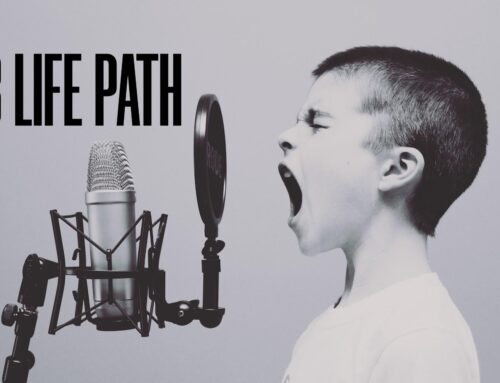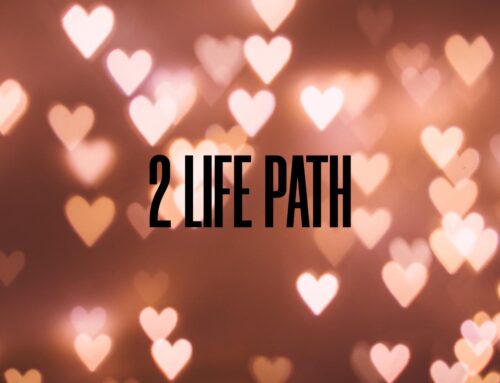I have to admit, there’s a lot of edgy energy going on right now.
Everyone I’m interacting with lately is feeling overwhelmed, agitated, and either spiritually adrift or spiritually activated (and wondering how to handle that activation!). And while it might be easy to blame our foul tempers and unpaid bills on global warming, the government, and our parents, that just won’t cut it. Sure, it’s easy to do. Yet blaming everything and everybody around us really doesn’t get at the heart of the issue, which is:
How can I feel good and be successful when everything around me is so bad?
In an article by Martha Beck – Life Coach and Author – she reveals some interesting insights about how to carve your own piece of solace and enjoyment in the midst of the barrage of real turmoil and despair that surrounds us every day, especially in our contemporary media-saturated culture. Especially during times of over-arching crisis.
She observes: “There was a time when I thought . . . small-scale enjoyment in a world so filled with suffering was a crime in itself. It was hard to take a bite of my overabundant food, hug my healthy children, or drive one fossil-fueled mile without pangs of guilt. The only moral thing to do, I believed, was to sustain an attentive misery, honoring the pain and danger in this world” (Oprah magazine, 9/2011, p. 67).
Yet what she realizes is that commiserating with the misery of the world doesn’t take away any of its misery, it simply adds yours to it. Rather like a compound fracture. And isn’t the point that you’d much rather live in a safe, loving, abundant world? Plopping your own dose of misery onto the heap doesn’t really do anyone much good, nor does it qualify you as a martyr to the cause.
So now what? Isn’t it bordering on disrespectful to actually glean some contentment when others are suffering? It’s rather like when we growing up and were told to eat our lima beans (or fill-in-the-blank for the hideous vegetable of your choice) because of the starving children in India, or China, or wherever. Not that they weren’t starving, mind you, yet eating yours certainly didn’t put any food on their empty plates.
So really, wouldn’t the best “revenge” against a hard, cruel world be to acknowledge the imperfections and yet focus on the small (and big) islands of satisfaction that are available to you? Like watching a funny or moving YouTube video, eating a fresh peach, listening to the neighbor’s 4-year old singing while she’s playing outside, or giving the driver who let you pull over in front of him the “happy-thank-you” wave?
Because when we’re feeling angry, exasperated, worried, defeated, and all the other emotions that run with those wolves, we truly form ruts of despair in our brains and even when we attempt (at some point) to steer our wheels out from the ruts and over into another part of the road, it is a real struggle to do it. Have you ever driven on a road with big ruts and tried to move over into the other lane? If you want move over, you have to get a vice-grip on the steering wheel and it’s scary – it feels like the tires are going to blow or that the car itself will just flip over. The vehicle itself starts to gyrate as it attempts to leave the rut and find a smoother road.
And that’s how your brain responds to you. We get really committed to – and in some ways addicted to – negative emotional responses. It’s difficult to stop the dominoes once the first one gets tipped over.
So how to start making the shift to give yourself permission to enjoy things even as other people are suffering?
“Nothing is good nor bad but thinking makes it so.” (William Shakespeare, Hamlet). Let that one sink in. It takes a lot of courage to step back and embrace the reality of this statement. You may disagree with good ole’ Willy Shakespeare, and yet he was an insightful guy when it comes to human nature. So we can say that the extinction of the dinosaurs was horrible, and yet it happened. We are living in an age with no dinosaurs. So was it bad that they all perished? Or is it just the way the world works? Change is inevitable and sometimes it takes a rather dramatic “call to action” (like our current political climate) to incite ground-level change.
“Is it true?” Byron Katie has a program she calls “The Work” that is based in asking yourself (and answering) four simple questions. Think about whatever is frustrating, depressing, or engulfing you and ask yourself: 1) Is it true? And then 2) Can you really know it is true? 3) How do you react or feel when you think that thought? And 4) How would you feel without that thought? Try it.
“If you don’t love yourself, you cannot love others. You will not be able to love others. If you have no compassion for yourself then you are not able of developing compassion for others.” (The Dalai Lama) So really, it does all start “at home.” How can we really think we can have an effect on others who are suffering when we are as miserable as those we seek to help?
“Look at the problems in your life. Ask yourself, ‘What kind of thoughts am I having that create this?” (Louise Hay) Darn it all. It really is true. We create our own realities by our responses to thoughts, events, and actions.
“It isn’t the things that happen to us in our lives that cause us to suffer, it’s how we relate to the things that happen to us that causes us to suffer.” (Pema Chodron) I know people who express the fact that getting cancer was the best thing that ever happened to them because it allowed them to let go of a lot of unwanted things and focus instead on the down-to-the-core important things in their lives. And guess what? They didn’t choose to put in extra hours at the office. They chose to reconnect with their adult children, heal old wounds, live in appreciation every day, and laugh a lot. Knowing you might die tomorrow tends to do that to a person. I love this TedTalk by B.J. Miller about what really matters at the end of life. Far from being fatalistic or maudlin, it is a great reminder for all of us to live each day with truth and authenticity.
In my numerology practice I find that knowing your numbers can fortify you as you engage in changes and in what might be considered tumultuous times. We can’t have too much support and validation and other supportive mechanisms as we navigate how to be our best even when – or especially when – faced with intense and trying situations in life.
So the message for me is this:
In order to re-circuit our responses to crisis situations first takes desire. Without the desire to change, there is nowhere to start. Second, it takes practice, plain and simple. There is no done. There is no perfect. There is only a dogged devotion to the practice of shifting our thoughts when we find ourselves feeling overwhelmed by the suffering of ourselves and of the world around us. And – laugh whenever you can. It’s the best antidepressant in your medicine cabinet.







 Each personal year is part of a 1 though 9-year cycle, beginning when you are born and repeating again after every 9th year. I have done the calculation to arrive at the Personal Month number and this is what your monthly forecast provides for you.
Each personal year is part of a 1 though 9-year cycle, beginning when you are born and repeating again after every 9th year. I have done the calculation to arrive at the Personal Month number and this is what your monthly forecast provides for you.